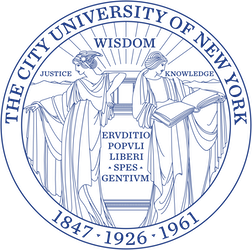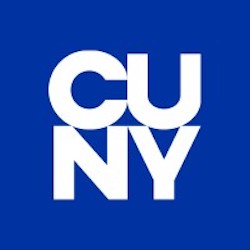
City University of New York (CUNY). The public university system of New York City, it is the largest urban university system in the U.S., comprising 25 campuses: eleven senior colleges, seven community colleges, and seven professional institutions.
The integration of CUNY’s colleges into a single university system took place in 1961, under a chancellor and with state funding. The Graduate Center, serving as the principal doctorate-granting institution, was also established that year. In 1964, Mayor Robert F. Wagner Jr. extended the senior colleges’ free tuition policy to community colleges.

The 1960s saw student protests demanding more racial diversity and academic representation in CUNY, leading to the establishment of Medgar Evers College and the implementation of the Open Admissions policy in 1970. This policy dramatically increased student diversity but also introduced challenges like low retention rates. The 1976 fiscal crisis ended the free tuition policy, leading to the introduction of tuition fees for all CUNY colleges. The university enrolls more than 275,000 students and counts thirteen Nobel Prize winners and twenty-four MacArthur Fellows among its alumni.
“The Harvard of the proletariat.”
During the post-World War I era, when many Ivy League universities discriminated against Jews, many Jewish academics and intellectuals studied and taught at CUNY. The City College of New York developed a reputation of being “the Harvard of the proletariat.”
In 1969, a group of black and Puerto Rican students occupied City College and demanded the racial integration of CUNY, which at the time had an overwhelmingly white student body.

Like many college campuses in 1970, CUNY faced several protests and demonstrations after the Kent State massacre and Cambodian Campaign.
The Administrative Council of the City University of New York sent U.S. president Richard Nixon a telegram in 1970 stating, “No nation can long endure the alienation of the best of its young people.”
Some colleges, including John Jay College of Criminal Justice, historically the “college for cops,” held teach-ins in addition to student and faculty protests.
In 2024, CUNY students joined other campuses across the U.S. to protest the Israel–Hamas war. The student protestors demanded that CUNY divest from companies with ties to Israel and that CUNY officials cancel any upcoming trips to Israel and protect students involved in the demonstrations.
CUNY is the fourth-largest university system in the U.S. by enrollment, behind the California State University, State University of New York (SUNY), and University of California systems. More than 271,000-degree-credit students, continuing, and professional education students are enrolled at campuses located in all five New York City boroughs.
The university has one of the most diverse student bodies in the U.S., with students hailing from around the world, although most students live in New York City. The black, white, and Hispanic undergraduate populations each comprise more than a quarter of the student body, and Asian undergraduates make up 18%. Fifty-eight percent are female, and 28% are 25 or older.
- City College (1847)
- Hunter College (1870)
- Baruch College (1919)
- Brooklyn College (1930)
- Queens College (1937)
- NYC College of Technology (1946)
- John Jay College of Criminal Justice (1964)
- York College (1966)
- Lehman College (1968)
- Medgar Evers College (1970)
- College of Staten Island (1976)
- William E. Macaulay Honors College (2001)
- Bronx Community College v1957)
- Queensborough Community College (1958)
- Borough of Manhattan Community College (1963)
- Kingsborough Community College (1963)
- LaGuardia Community College (1968)
- Hostos Community College (1970)
- Guttman Community College (2011)
- CUNY Graduate Center (1961)
- CUNY School of Medicine (1973)
- CUNY School of Law (1983)
- CUNY Graduate School of Journalism (2006)
- CUNY School of Professional Studies (2006)
- CUNY School of Public Health (2008)
- CUNY School of Labor and Urban Studies (2018)
CUNY employs 6,700 full-time faculty members and over 10,000 adjunct faculty members. Faculty and staff are represented by the Professional Staff Congress (PSC), a labor union and chapter of the American Federation of Teachers.
Notable faculty: F. Murray Abraham, Allen Ginsberg, Itzhak Perlman, Mark Rothko, Dr. Ruth, Elie Wiesel, Audre Lorde, Abraham Maslow, Arthur M. Schlesinger Jr., Jonas Salk, Betty Shabazz,